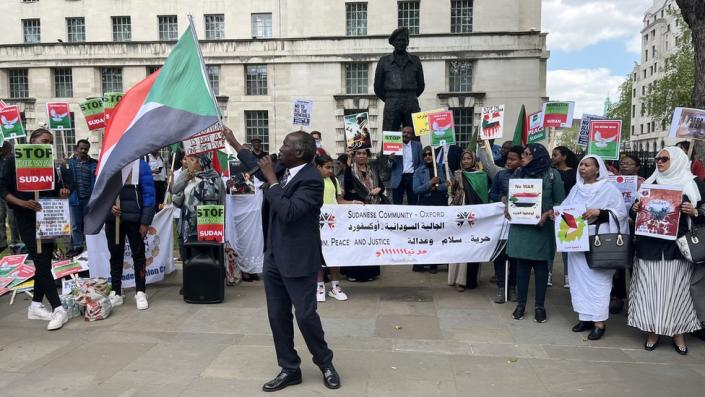
Members of the Sudanese community in Oxford continue to fight to bring their families home as many remain stranded abroad.
The country has been plunged into chaos by the conflict which began on April 15 and led to an exodus of foreigners.
This has left many Sudanese in Egypt or other neighboring countries with little money to return home or for loved ones.
The government said it had carried out “by far the longest and largest evacuation of any Western country”.
At least 850 people have been killed since the fighting began.
Nazar Yousif, of the nonprofit Sudanese in Oxford, said his inbox had been flooded with more than 65 individual cases of family members in the area struggling to be evacuated.
He called the government’s response to the crisis ‘unacceptable’ and added: ‘The government has said it is monitoring the situation but does not believe it is at the level of Ukraine so it will not offer visa relaxation or emergency visas.”
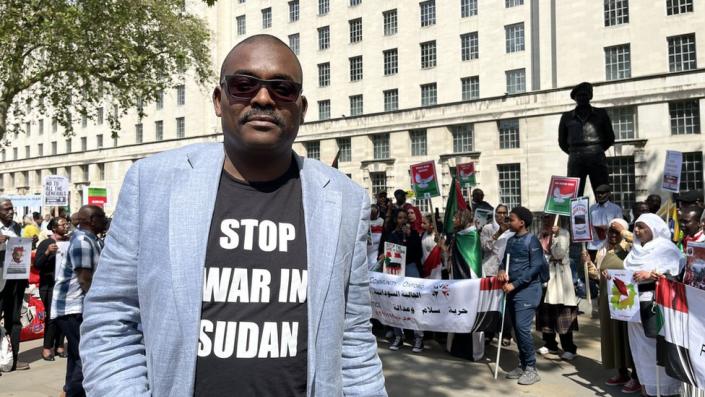
Last month, Nahla Abugusseisa decided to travel to Aswan in Egypt, a common evacuation location for Sudanese refugees, to rescue her gravely ill mother.
Fighting that broke out on April 15 between the army and the paramilitary Rapid Support Forces (RSF) led many civilians to attempt to flee across the borders of Egypt, Ethiopia and Chad.
The main roads are at the mercy of the militia, leaving the civilians to follow the secondary roads. That means a six-and-a-half-hour drive from Khartoum to Dongola ends up taking 11.
This was the trip Nahla’s mother, Afaf, was supposed to take, although she was barely able to speak or move due to her medical condition.
After spending more than £5,000 to get the 78-year-old woman across the border, her case was taken up by Oxford East MP Anneliese Dodds.
The former Labor shadow chancellor said in an email: ‘We will do everything we can to get the Home Office to look into it as soon as possible’, adding that he could ‘use discretion in these difficult circumstances”.
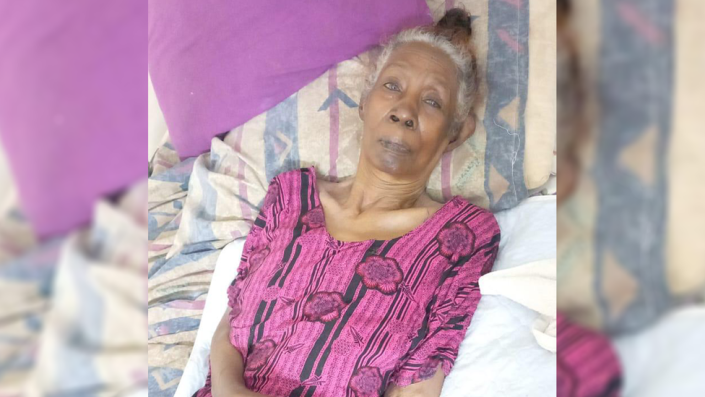
Niam Ali, her two-year-old son, Yousif, and her husband, Mohammed Yassien, were denied a return flight after learning they were not all eligible for rescue.
After the issue was raised in parliament, Foreign Secretary Andrew Mitchell said the government would do all it could to help.
Niam and her son Yousif, who both have British passports, were able to travel to Egypt where they remain. Her husband is still in Sudan.
Ahmed Allan’s wife and children, a four-year-old and 14-month-old twins, traveled to Al Qadarif from Oxford on March 14 to visit family, including his ailing father.
With his family stranded in the country, Mr Allam had to borrow £1,800 for theft from a neighbor who belongs to St Ebbes Church in Oxford.
After three bus rides, a flight to Addis Ababa and another flight to Cairo, they were told that they had to buy new tickets because they had missed their flight from Sudan to Egypt.
“I just want my family back but I’m not getting the support,” Mr Allam said.
Mr Allam, who works at Burger King in Cowley, was paying rent on his family’s flat in Egypt, which was due to run out on June 2.
He said: “Imagine you haven’t had your children with you for the past two months. You don’t know how they eat, you don’t know how they sleep… I can’t sleep, I can’t work, I can’t do anything.”
Eventually, with help from the British Embassy in Cairo, Mr Allam was able to change flights and bring his family home, but still has to repay £1,200.
Islam Mohammed, another Oxford resident, said she had no possibility of evacuating her mother, who remains stranded in Sudan after her Ramadan visit.
She said: “The English government’s response is that they will not help their own citizens – they don’t fit the Ukrainian narrative.
“Some of the communities I know are working class families and live paycheck to paycheck and it’s not easy to come up with that money.
“Calling abroad is hit and miss – sometimes it works and sometimes it doesn’t. Sending money is also impossible because places to withdraw money are closed or guarded by militias.”
Last week, members of the Sudanese community in Oxford demonstrated opposite Downing Street, calling on the government to act.
Sahra Ahmed, president of the Sudanese in Oxford, worries about the impact on the mental health of her community.
She said: “Sudan is not treated the same as Ukraine or Syria who have been in the same situation. My own house has been invaded and the militia is living there. My situation is the same as hundreds and thousands more”.
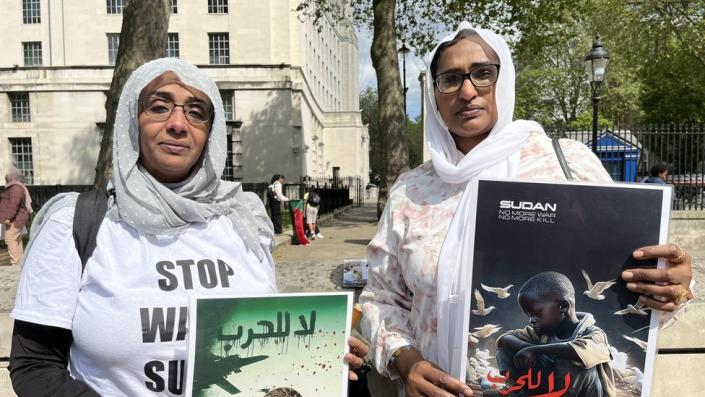
Hala Khier, another member of the organisation, said: “In December 2018 many people called on the UK to do something about the RSF. Everyone is down but there is nothing we can do. “As British nationals, we believe the UK should act, even providing basics like medicine and food.”
Dr Hashmi Mukhtar, general secretary of the Sudanese Revolutionary Movement in the UK, said the organization wanted to get humanitarian aid to the towns most affected by the conflict.
He said: “Egypt is overcrowded and there is no support for them. Ethiopia is hostile to them. We need humanitarian aid and we need a ceasefire. .”
A UK government spokesperson said: “The UK has carried out by far the longest and largest evacuation of any Western country from Sudan, bringing 2,450 people to safety.
“It has always been true that evacuation has been open to UK nationals and eligible family members, with a later exemption for NHS clinicians.
“Alongside the UK evacuation effort, we are working with international partners and the United Nations to end the fighting.”
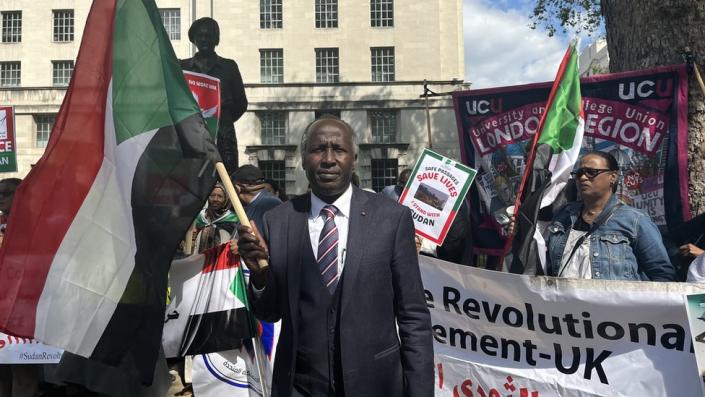
Follow BBC South on Facebook, TwitterOr instagram. Send your story ideas to south.newsonline@bbc.co.uk.

